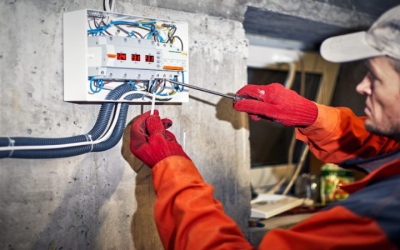In a world where consumers are continuously bombarded with advertisements, events, and digital material, brands must aim to provide memorable experiences. Immersive interactions are now being used to enhance traditional marketing tactics by capturing and engaging clients on a deeper level. These experiences, which range from interactive pop-ups to large-scale festival activations and virtual meetings, are meticulously designed to create an indelible impression. Experiential production, which emphasizes sensory engagement and emotional resonance, enables brands to convey their stories in richer, more compelling ways than typical commercials or digital advertising campaigns.
The Power of Experiential Marketing
Experiential marketing has evolved as one of the most effective ways to interact with modern consumers, particularly those who value authenticity and emotional resonance. Unlike traditional advertising tactics that broadcast messages to the audience, experiential marketing fosters an environment in which individuals can actively engage with a business. This hands-on approach enables customers to form a personal relationship with the brand, perhaps leading to increased loyalty and advocacy. A well-designed experience gives consumers a memorable moment and a tale to tell. Building relationships is key to experiential marketing, whether it takes the form of a live event, a virtual environment, or an interactive installation. These experiences frequently employ cutting-edge technology, incorporating components such as augmented reality, virtual reality, and live social media participation to increase audience immersion and interactivity. By utilizing these unique tactics, an experiential production company can translate a brand message into a multi-sensory experience that lasts long after the event is over.
Why Brands Are Embracing Experiential Production Companies
Brands across industries, including technology, fashion, and automotive, are increasingly turning to immersive event professionals to differentiate themselves. In a congested market, the value of providing an exceptional experience is unparalleled. It not only leaves a lasting effect on those who participate, but it also expands the brand’s reach by encouraging people to share their experiences on social media. This organic, user-generated material lends credibility to the brand’s image, as personal recommendations from customers frequently have more power than traditional advertisements. Experiential marketing also provides businesses with measurable results. Real-time analytics, for example, can provide brands with insights into consumer behavior, preferences, and engagement levels. This data allows them to fine-tune their strategy for future events, ensuring that each experience is increasingly suited to the audience’s needs.
Designing the Experience: The Role of Innovation and Creativity
Every successful immersive event begins with a creative concept. However, the path from concept to execution is complicated and involves more than inspiration. Designers, strategists, and event planners collaborate to create experiences that not only reflect the brand’s identity but also engage with the intended audience. Understanding the intended audience is an important component of the job. An experiential production company uses its team’s talents to create memorable events that include immersive storytelling, interactive displays, and sensory-rich locations. Businesses in experiential production can tailor experiences to the intended participants by evaluating demographic data, psychographics, and trends. This data-driven strategy guarantees that the event is both effective and relevant, which increases the likelihood of positive engagement and brand retention. Additionally, creativity is required to create experiences that are distinctive and unforgettable.







